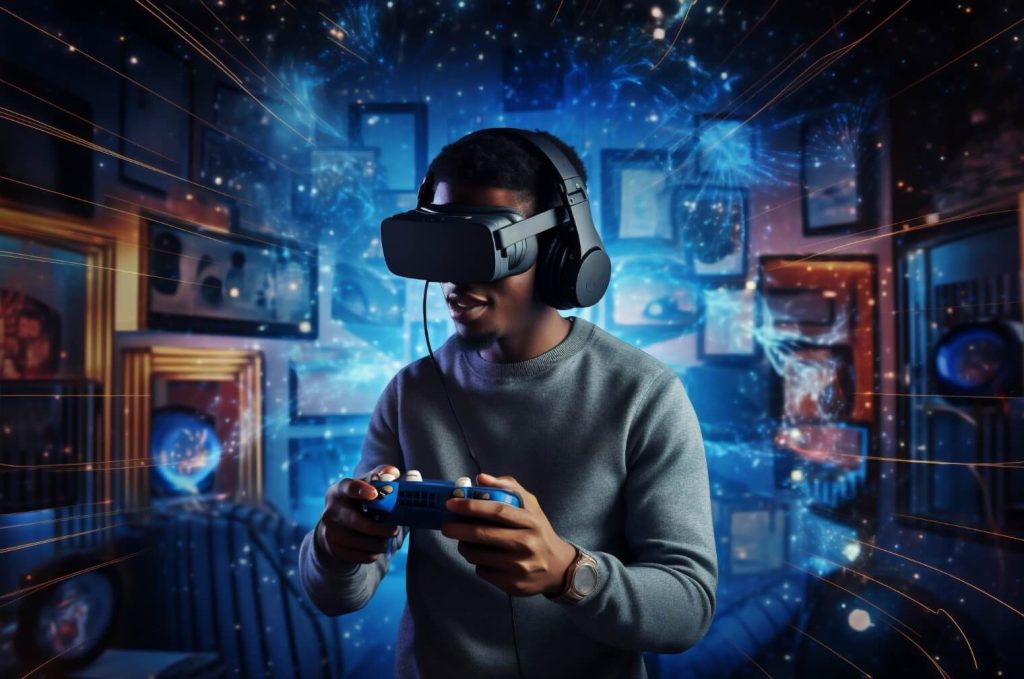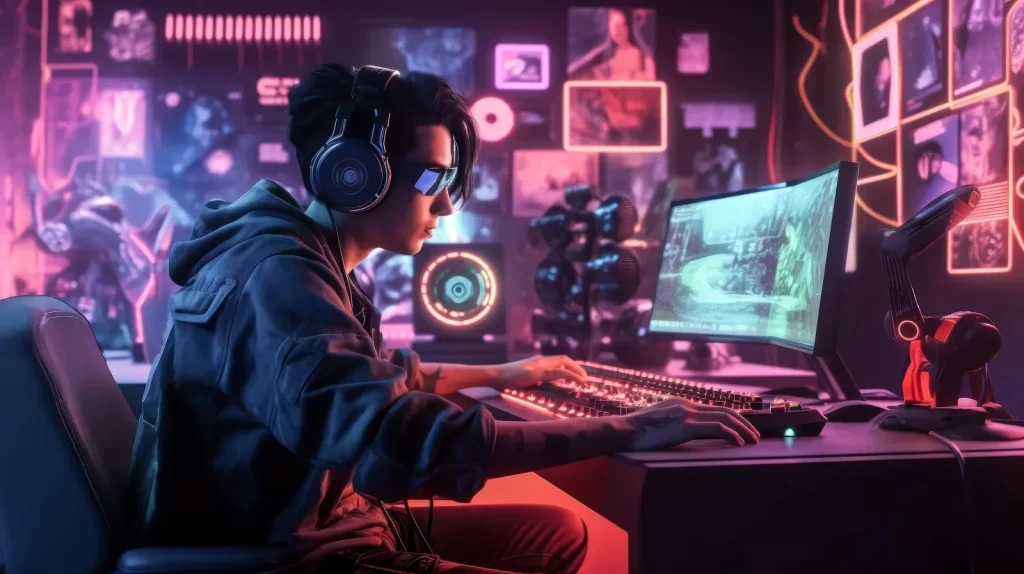Artificial Intelligence (AI) is set to revolutionize the video game industry in numerous ways, shaping how games are developed, played, and experienced. Here are some key areas where AI will have a profound impact:
1. Smarter NPCs and Dynamic Gameplay
In the past, non-player characters (NPCs) were often limited by pre-programmed behavior, which could lead to predictable and repetitive interactions. AI-driven NPCs, however, are becoming more reactive and adaptive. With AI, NPCs can learn from player actions and modify their behavior in real time, making the gameplay experience much more dynamic. Games like The Last of Us Part II and Watch Dogs: Legion already use AI to adapt to how players interact with the environment and each other, ensuring that no two playthroughs are exactly alike.
In the future, AI could take NPC behavior to the next level by giving them the ability to develop complex personalities and respond more convincingly to different player choices, further enhancing player indulgement.
2. Procedural Content Generation
Procedural content generation (PCG) is the use of algorithms to create large, complex game worlds or environments that are unique each time a player interacts with them. AI can be utilized to create expansive worlds, quests, and missions that are dynamically generated based on the player’s actions or in-game decisions. Minecraft and No Man’s Sky use AI-driven procedural generation to create ever-expanding universes that offer infinite exploration.
As AI technology advances, PCG will become more sophisticated, creating increasingly detailed and meaningful content that feels hand-crafted but is generated on the fly, ensuring every player has a personalized experience.
3. Personalized Game Experiences
AI will also enhance the personalization of gaming experiences. By analyzing player data such as play styles, preferences, and performance, AI can adjust game difficulty, content, and pacing to better match individual players. This dynamic difficulty adjustment (DDA) will help ensure that players are neither overwhelmed by difficult challenges nor bored by easy tasks, creating a more enjoyable experience. Games like Left 4 Dead and Resident Evil 4 already feature AI that adapts to players’ actions, but future AI could take this to the next level, offering personalized quests, story arcs, and even changing the tone of the game depending on player mood and actions.
4. AI-Powered Storytelling and Dynamic Narratives
One of the most exciting areas where AI will transform video games is in narrative design. AI could enable games to create entirely new storylines based on player choices and actions, making each playthrough truly unique. By analyzing player behavior, AI could adapt the plot, characters, and even the game world itself to reflect the player’s decisions, creating a deeper and more personalized narrative.
This concept is already in its infancy with games like Detroit: Become Human, where the story branches based on player choices, but future advancements in AI could lead to more complex, procedurally generated storylines that feel organic and ever-changing.
5. Enhanced Graphics and Animation
AI will continue to play a key role in improving graphics and animation in games. AI-powered tools like DLSS (Deep Learning Super Sampling) enable better image quality by upscaling lower resolution images without the need for high-end hardware. AI can also be used to enhance facial animations, making character expressions more lifelike and responsive. This is especially important for creating better and emotionally impactful experiences, as seen in titles like Red Dead Redemption 2 and Uncharted 4.
In the future, AI could help streamline the creation of highly realistic, emotionally intelligent characters that adapt to the player’s actions and evolve over time.
6. AI in Game Testing and Quality Assurance
Game development is a highly complex process, and AI can significantly improve the efficiency of testing and quality assurance. AI can simulate player behavior, test different scenarios, and identify bugs or flaws in the game world much faster than human testers. This speeds up development, reduces costs, and ensures a more polished final product. AI can also predict and fix issues before they become apparent, improving game performance and reducing the likelihood of major bugs post-launch.
7. AI in Game Streaming and Cloud Gaming
AI will also play an important role in the growing sector of cloud gaming and game streaming. Platforms like Google Stadia, Xbox Cloud Gaming, and NVIDIA GeForce Now are leveraging AI to reduce latency, predict player input, and enhance overall performance in real-time. AI algorithms are being used to ensure smooth streaming by adjusting video quality dynamically based on network conditions, minimizing lag, and optimizing visual fidelity.
8. AI-Powered Game Development Tools
AI-driven development tools are changing the way games are made. These tools can automate repetitive tasks, such as creating assets, generating levels, and even writing code, freeing up developers to focus on more creative aspects of the game. AI can also help with gameplay design by predicting how players will interact with the game, allowing developers to fine-tune the experience before release.
Conclusion
The role of AI in gaming is expanding rapidly, offering limitless potential to enhance both the creation and consumption of video games. From smarter NPCs and procedural worlds to personalized gaming experiences and dynamic narratives, AI is set to take the gaming world to new heights. As technology continues to evolve, we can expect even more innovative applications, leading to a better, engaging, and customized gaming experience for players around the globe.



